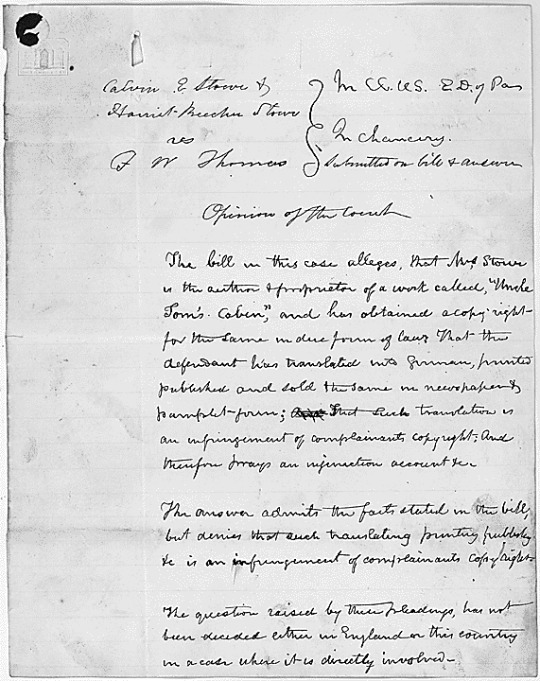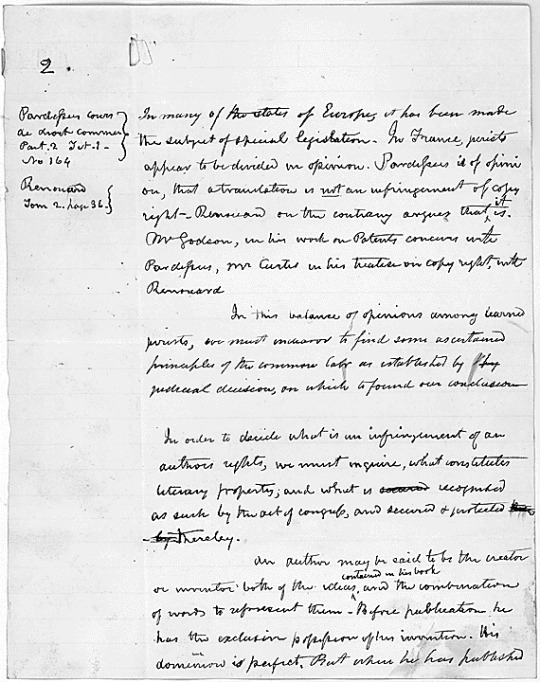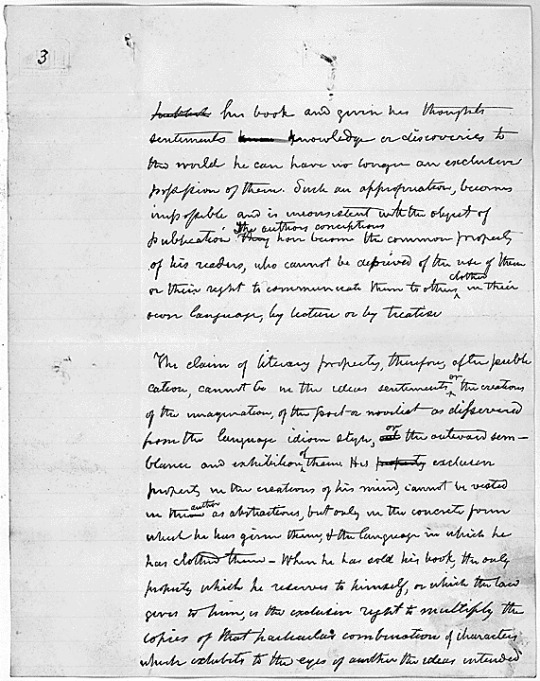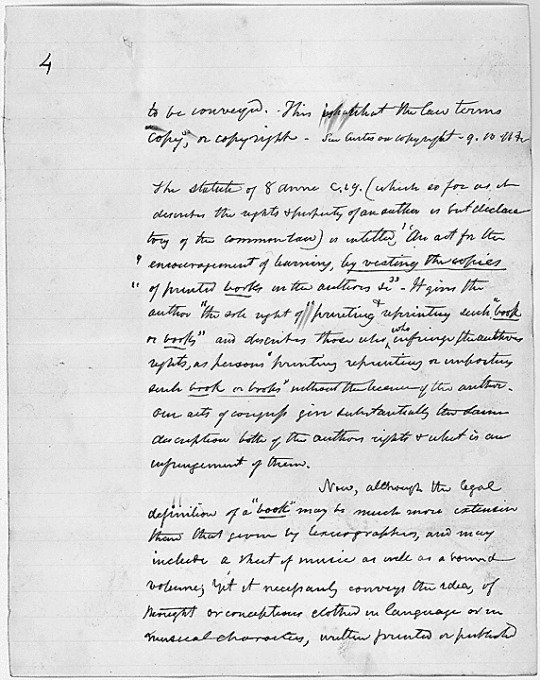#Uncle Tom's Cabin
Explore tagged Tumblr posts
Text
Warrant - Uncle Tom's Cabin
#Warrant#Cherry Pie#Uncle Tom's Cabin#Format:#Vinyl LP Album#Released:#1990#Hard rock/Heavy#Hard n Heavy/ Glam#Jani Lane (R.I.P.)#USA#Oh my God#Tom#who are we gonna tell#The sheriff he belongs in a prison cell#Keep your mouth shut#That's what we're gonna do#Unless you wanna wind up#In the wishin' well too#I know a secret down at Uncle Tom's Cabin
22 notes
·
View notes
Text
Want some free ebooks that are beautiful, in addition to being free?
*stares daggers at Project Gutenberg*
Here you go!
#reading#free#books#if you haven't read Uncle Tom's Cabin yet in your life#do it now#Uncle Tom's Cabin#should be required reading for every person on planet Earth#It's one of the books that should be sent into space IMO#harriet beecher stowe
14 notes
·
View notes
Text




Opinion of the Court in Stowe v. Thomas
Record Group 21: Records of District Courts of the United StatesSeries: Equity Case FilesFile Unit: Stowe v. Thomas, Case #9 October Session 1852
Calvin E Stowe & [bracket] In CC. US. E.D. of Penn Harriet Beecher-Stowe vs In chancery F W Thomas [end bracket] Submitted on bill & answer Opinion of the Court The bill in this case alleges that Mrs Stowe is the author & proprietor of a work called, "Uncle Tom's Cabin," and has obtained a copyright for the same in due form of law; that the defendant has translated into German, printed published and sold the same in newspaper & pamphlet form; [struck through] That such translation is an infringement of complainants copyright; And therefore prays an injunction account &c. The answer admits the facts stated in the bill, but denies that such translating printing publishing &c is an infringement of complainants copyright. The question raised by these pleadings, has not been decided either in England or this country in a case where it is directly involved2. Pardessus cours [bracket] In many of the states of Europe, it has been made the de droit commer subject of special legislation. In France, jurists appear Part. 2 [T?]. 1 to be divided in opinion. Pardessus is of opinion, that No 164 [end bracket] a translation is not an infringement of copyright, Renouard on the contrary argues that ^it^ is. Mr. Godson, in his work Renouard [bracket] on Patents concurs unto Pardessus, Mr Curtis in his Tom 2. Page 36. [end bracket] treatise on copyright unto Renouard In this balance of opinions among learned jurists, we must endeavor to find some ascertained principles of the common law as established by [struck through] judicial decision, on which to found our conclusion In order to decide what is an infringement of an authors rights, we must inquire, what constitutes literary property; and what is [struck through] recognized as such by the act of congress, and secured & protected [struck through] thereby. An author may be said to be the creator or inventor both of the ideas ^contained in his book^ and the combination of words to represent them. Before publication he has the exclusive possession of his invention. His dominion is perfect. [full transcription at link]
#archivesgov#December 24#1853#19th#harriet beecher stowe#stowe v. thomas#copyright#uncle tom's cabin
26 notes
·
View notes
Text
Of course, in a novel, people's hearts break, and they die, and that is the end of it; and in a story this is very convenient. But in real life we do not die when all that makes life bright dies to us.
Uncle Tom’s Cabin by Harriet Beecher Stowe
#harriet beecher stowe#uncle tom's cabin#book#book quote#quote#words#reading#fiction#classic#literature
5 notes
·
View notes
Text
Uncle Tom's Cabin - Warrant
youtube
3 notes
·
View notes
Text
Not just a novel, but a call for action.

‘It is a matter of taking side of the weak against the strong, something the best people have always done.‘
//
‘What poor, mean trash this whole business of human virtue is, when one talk about it forever and do nothing.’
//
‘The longest way must have its close - the gloomiest night will wear on to a morning.’


#Anti-slavery#social reform#moralit#19th century literature#harriet beecher stowe#literature#book cover#book#world literature#abolitionist movement#uncle tom's cabin
2 notes
·
View notes
Text
The hugely successful anti-slavery tale by US writer Stowe (1811-96) helped to persuade readers that Christian beliefs and slavery were incompatible.
on Uncle Tom's Cabin (1852), Harriet Beecher Stowe taken from The Literature Book: Big Ideas Simply Explained, by James Canton (x)
☕ would you like to buy me a cup of coffee? (x)
#juli-quotes#juli-the-literature-book#uncle tom's cabin#harriet beecher stowe#slavery#anti-slavery#english literature#american literature#academia#literature student#literature studyblr#light academia#dark academia#english lit#classism#oppression
2 notes
·
View notes
Text
Uncle Tom Cotton, Senator from Arkansas doesn't want us to see what we saw.
0 notes
Text
Warrant - Blind Faith
#Warrant#Cherry Pie#Blind Faith#Uncle Tom's Cabin#Format:#Vinyl LP Album#Released:#1990#Hard rock/Heavy#Hard n Heavy/ Glam#Jani Lane (R.I.P.)#USA
14 notes
·
View notes
Text
0 notes
Text
HARRIET BEECHER STOWE // AUTHOR
“She was an American author and abolitionist. She came from the religious Beecher family and wrote the popular novel Uncle Tom's Cabin (1852), which depicts the harsh conditions experienced by enslaved African Americans. The book reached an audience of millions as a novel and play, and became influential in the United States and in Great Britain, energizing anti-slavery forces in the American North, while provoking widespread anger in the South. Stowe wrote 30 books, including novels, three travel memoirs, and collections of articles and letters. She was influential both for her writings as well as for her public stances and debates on social issues of the day.”


0 notes
Text
I make no manner of doubt that you threw a very diamond of truth at me, though you see it hit me so directly in the face that it wasn't exactly appreciated, at first.
Uncle Tom's Cabin by Harriet Beecher Stowe
4 notes
·
View notes
Text
0 notes
Text


Uncle Tom's Cabin on Queen's Promenade, North Shore, at the junction with Knowle Avenue in 1956.
The original building was located much closer to the sea on a corroding coastline during the 1850's but by turn of the century almost all of the buildings had tumbled into the sea eventually closing its doors in 1907 to move to a new location on the newly constructed Queen's Promenade where it still stands to this day.
Today it exists as (yet) another Ma Kelly's.
0 notes
Text
Uncle Tom's Cabin - Warrant
youtube
1 note
·
View note
Text
0 notes